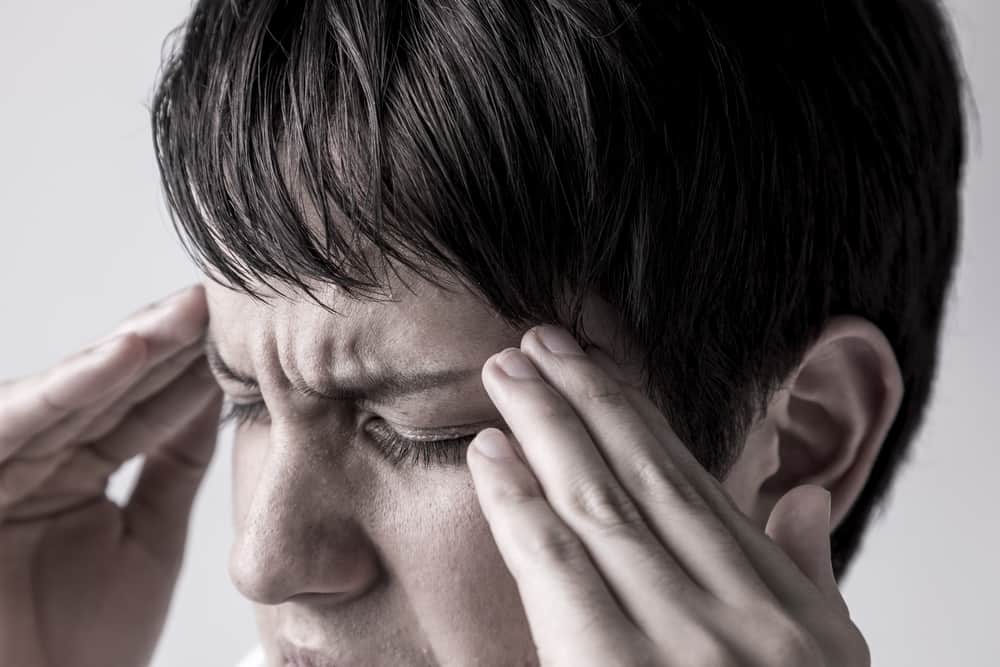Contents:
Medical Video: Anthrax - Madhouse
- Definition
What is anthrax?
anthrax is a serious infectious disease caused by a rod-shaped gram-positive bacterium known as Bacillus anthracis. Anthrax can be found naturally in the soil and usually infects domestic wild animals throughout the world. Although rare, people can get anthrax if they make direct contact with infected animals or contaminated animal products.
Contact with anthrax can cause serious illness, both in humans and animals. Anhtrax is not infectious, meaning that you will not be easily attacked like a fever or flu.
What are the signs and symptoms?
Symptoms of anthrax depend on the type of infection and can appear for one day or even more than 2 months. All types of anthrax have the potential to spread throughout the body and cause serious illness and even death.
Symptoms of skin-related anthrax include:
- A collection of blisters on the skin, or a small portion of the skin blisters or bumps that cause itching
- Wounds on the skin that don't hurt, with a black center that appears on the lump
- Usually a wound can occur on the face, neck, arms or hands
- Swelling can occur around the wound
Symptoms of respiratory-related anthrax:
- Heat and fever
- Chest feels uncomfortable
- Short breath
- Confusion or dizziness
- Cough
- Nausea, vomiting, or abdominal pain
- Headache
- A cold sweat
- Extreme fatigue
- Unwell
Symptoms of anthrax related to the digestive system include:
- Heat and fever
- Swelling of the neck or neck glands
- Sore throat
- Pain swallowing
- Hoarseness
- Nausea and vomiting, especially bloody vomiting
- Bloody diarrhea or diarrhea
- Headache
- Blushing face and eyes
- Stomach ache
- Fainted
- Abdominal swelling (stomach)
Symptoms of anthrax due to drug injection:
- Heat and fever
- A collection of small lumps that can itch, usually appearing at the location where the drug is injected
- Wounds on the skin with a black center, usually appear after a lump
- Swelling around the wound
- An abscess or boil under the wound or in the muscle where the drug is injected
You need to remember, the symptoms of anthrax due to injection of drugs are similar to anthrax on the skin, but anthrax due to injection of drugs can spread in the body faster, more difficult to recognize, and more difficult to treat than anthrax on the skin.
Skin infections or in the area of drug injection are common and do not indicate that a person has anthrax.
- How to overcome
What should I do?
The doctor may have several options to treat anthrax patients, including the administration of antibiotics and antitoxin. Patients with serious anthrax cases need to be hospitalized. They may need serious treatment, such as fluid infusion and mechanical ventilation aids for breathing
Antibiotics
All types of anthrax infections can be treated with antibiotics, including injection antibiotics (treatment given by pulse). If someone has anthrax symptoms, it is important to get medical attention as soon as possible for total recovery. The doctor will choose the best antibiotic to treat anthrax according to the patient's medical history.
Antitoxin
When anthrax wounds spread to the inside of the body, the virus can be 'activated'. When the virus becomes active, anthrax bacteria can multiply, spread throughout the body, and produce toxins or poisons. Anthrax toxins in the body can cause serious illness.
After the anthrax toxin is removed from the body, one possible treatment is antitoxin. Antitoxins attack anthrax toxins in the body. Doctors must use antitoxin along with other treatment options.
At present, there are several types of antitoxin that can be used to treat anthrax.
When do I have to see a doctor?
If you suspect you have anthrax, you need to see a doctor and explain why you think you have been attacked by anthrax. Doctors can explain the use of antibiotics to prevent you from getting sick. If you already feel the symptoms of anthrax, it is important to immediately contact a medical support as soon as possible to get a chance to recover.
- Prevention
Antibiotics can prevent the development of anthrax in people who have been infected but have not shown symptoms of anthrax. Ciprofloxacin and Doxycycline are two antibiotics that can be used to prevent anthrax.
Vaccine
The vaccine does not contain any anthrax bacteria and cannot be given to anthrax agents. If an emergency occurs due to anthrax, people who get anthrax can be given an anthrax vaccine to prevent the development of the disease. This is allowed under a special protocol for the use of vaccines in emergency situations
Routine Use (Before Attacking)
The routine anthrax vaccine is used by three groups of adults aged 18 to 65 who may be at risk of developing anthrax because of their work, such as:
- Certain laboratory employees who work with anthrax
- Some people who handle animals or animal products, such as some veterinarians (veterinarians or people who are experts in animal science)
- Some members of the military
To build protection against anthrax, the group of people must consume 5 doses of anthrax vaccine for approximately 18 months. To stay protected, they must get a routine dose. Dosage injected through the muscle (intramuscularly)
People Who Cannot Get Anthrax Vaccine
Some people should not take anthrax, including:
- People who have serious allergic reactions in the previous dose of anthrax vaccine.
- People with serious allergies to any component associated with the anthrax vaccine. People who have serious allergies, including latex allergies, should inform the doctor about this.
- For people with normal or severe illness, the doctor may recommend waiting until healed and then given the vaccine. People with mild illness can be immediately given a vaccine.
- Pregnant women are not recommended to get a vaccine.
Emergency Use (after being attacked)
In certain situations, such as the occurrence of bioterrorism or attacks related to anthrax, anthrax vaccines may be recommended to prevent anthrax attacks in people who have previously been attacked.
If this really happens, people who get anthrax will get 3 times the dose of anthrax vaccine for 4 weeks plus 60 days of antibiotic use to prevent disease











